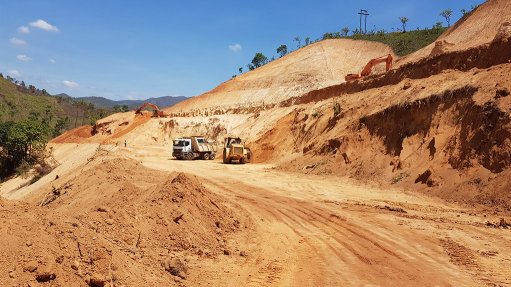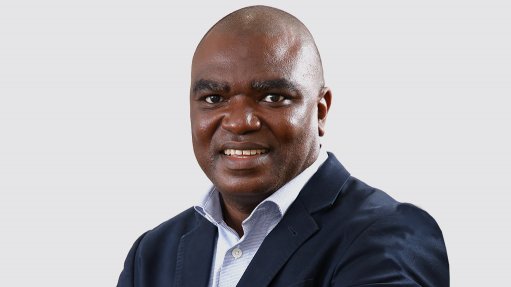
+27 11 441 1111
SRK House, 265 Oxford Road, Illovo, 2196, South Africa

West Africa focus



UNEARTHING MINING POTENTIAL SRK is expanding its services to cater to West Africa's mining needs
IVAN DOKU Ghana presents exciting and challenging prospects to emerging players
To meet the growing demand for broadening the range of skill sets in West Africa's burgeoning mining industry and in an effort to cater to its development challenges and various other issues, engineering consultancy firm SRK Consulting, through its West Africa hub in Accra, in Ghana, has been expanding its services.
SRK Consulting Ghana country manager Ivan Doku explains that Ghana presents “exciting and challenging prospects” to emerging players amid tightening regulations, new sources of investment and novel technologies, which contribute to the demanding environment.
SRK’s expansion over the past three years sees their Ghanaian subsidiary shifting from its traditional focus on mine geotechnical engineering, quality assurance and quality control of tailings storage facilities, to now include exploration services in the junior and midtier mining sector.
“Our Accra office is currently independently undertaking a full exploration programme with a junior miner in the gold sector,” he reveals.
The ongoing project involves SRK Consulting assisting the client with their first major mineral resource estimate for a hard rock gold prospect in Ghana’s Kibi goldbelt.
The Kibi goldbelt, located in the eastern region of south Ghana, is predominantly known for alluvial gold mining.
The thick overlying alluvial cover has historically been the main source of gold because the exploitation and extraction on a small or large scale has been more economical and easier than that which can be achieved through hard rock mining.
SRK’s programme with this client involves checking the validity of existing exploration data and developing a geological model based on certain assumptions.
“Existing samples are also being re-analysed, and a new exploration drilling programme is currently being implemented,” Doku highlights.
He notes that in the project, SRK Consulting has encountered several key challenges in exploring hard rock gold prospects.
Doku points out that the Kibi goldbelt bedrock remains largely untapped, owing to a limited understanding of the complexity of the shear zones that host gold mineralisation.
In addition, there is inadequate geophysical data, while the available data lacks proper scrutiny regarding interpretation with respect to the controls on the mineralisation.
Nonetheless, existing geological data presents the opportunity to re-evaluate historical hot spots.
Doku elaborates that while larger companies may not have pursued smaller or lower-grade deposits in the past, emerging interest from smaller players, especially in times of high gold prices, could lead to the development of previously overlooked prospects as they become more economically feasible, owing to the higher gold prices and improved technologies.
He asserts that, to uncover new prospects, it is crucial to adopt advanced exploration technologies, such as high-level aeromagnetic surveys, to complement traditional exploration methods.
Therefore, SRK is addressing these challenges and gaps in the market, by expanding its services, using advanced technologies, and leveraging local expertise.
Shifting Investment Dynamics
West Africa is witnessing a shift in investment dynamics in the mining industry, according to SRK Consulting South Africa chairperson Vis Reddy, who says that investment, traditionally from Western countries, is now flowing from Asian countries such as China and India, and more recently, the Middle East.
Doku explains that while it could be perceived that there are no easy-to-explore mineral targets left in Ghana, this outlook has not deterred a growing number of companies from exploring and developing orebodies.
Interest from countries in the Middle East, such as the United Arab Emirates and Qatar, comes as a result of these countries looking to diversify from petroleum assets into industries like mining, says Reddy.
“This marks a significant shift away from the traditional investment base, often signalling an interest from countries and companies who are not always very familiar with the mining environment,” he adds.
Meanwhile, amid these changes to regional dynamics, West African countries are implementing mining codes and protocols that align with both their economic development agendas and global best practices in the minerals sector, Doku points out.
This alignment emphasises imperatives such as local economic empowerment, as governments aim to increase local benefits from foreign mining investments.
Further, Doku highlights that legislation in Ghana is rapidly changing; in particular, he says that while legislation on the inclusion of local content in mining contracts is well documented by the Ghana Minerals Commission, its enforcement is lacking.
However, in the past year, he says the Minerals Commission has emphasised the severity of the penalties that mining companies will face if they fail to adhere to these laws.
In response to this shift, SRK Ghana has noted some major mining companies have started detailing these requirements in their tender documents.



